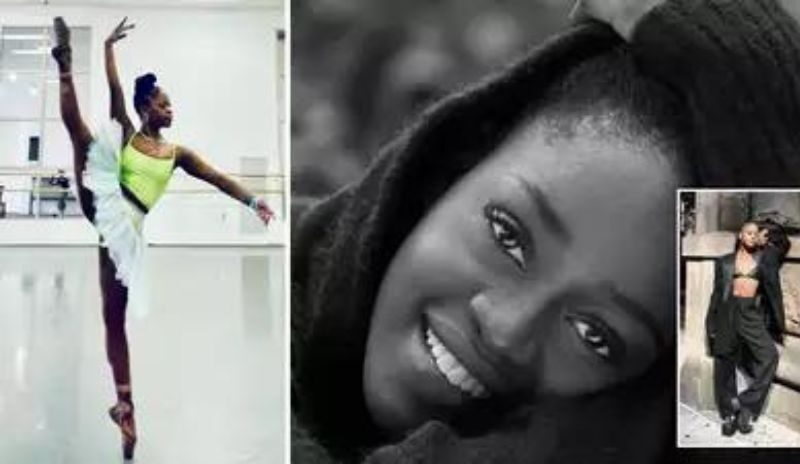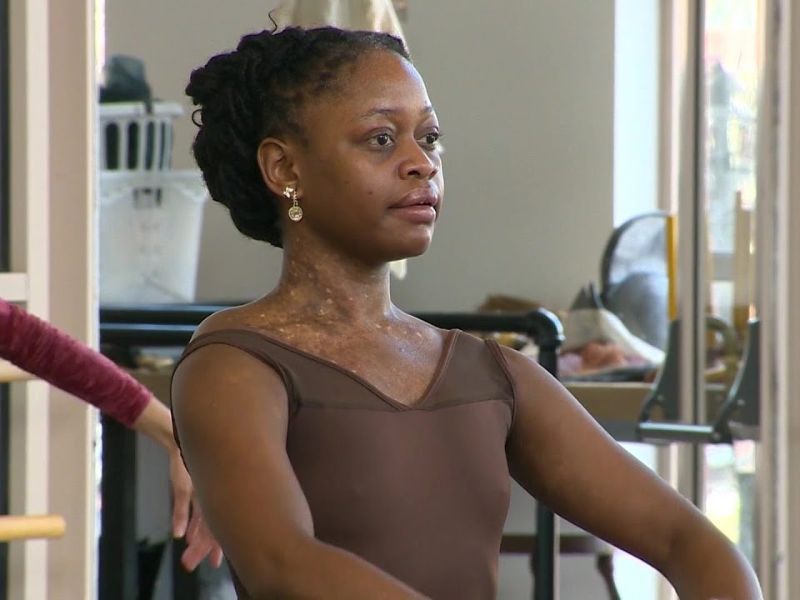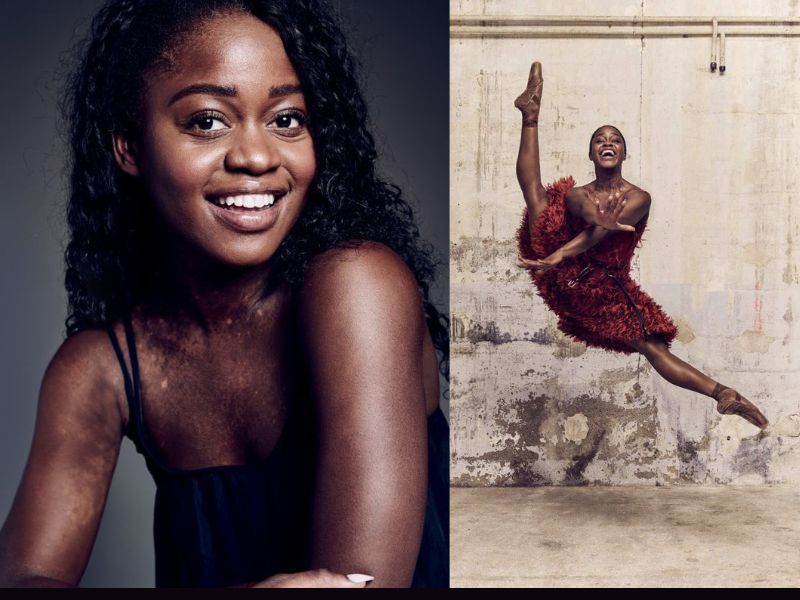Boston Ballet Mourns Michaela DePrince, Former Dancer and Advocate for Diversity
The world of expressive dance has misplaced one of its brightest stars. Michaela Mabinty DePrince, a celebrated artist and advocate for differing qualities in expressive dance, has passed absent at the age of 29. The awful news was shared on DePrince’s official Instagram page, clearing out the expressive dance community and her numerous admirers in profound grieving. Even though the cause of her passing has not however been unveiled, the misfortune of DePrince is being felt around the world.
Her family, in their ardent tribute, portrayed her as a reference point of elegance, quality, and unflinching commitment to her craftsmanship and compassionate endeavors. “Her life was one characterized by elegance, reason, and quality,” the articulation examined. “Her faithful commitment to her craftsmanship, her compassionate endeavors, and her strength in overcoming incredible challenges will until the end of time motivate us. She stood as a signal of trust for numerous, appearing that no matter the impediments, excellence, and significance can rise from the darkest of places.”
A Journey Defined by Resilience and Talent

Born Mabinty Bangura in Sierra Leone on January 6, 1995, DePrince’s early life was checked by catastrophe. The respectful war that crushed Sierra Leone took both of her guardians. Her father was slaughtered by the Progressive Joined Together Front, and her mother passed on of starvation. At the age of three, DePrince was sent to a halfway house, where she endured abuse due to her vitiligo, a skin condition that caused her to be labeled as “unlucky.” DePrince reviewed being positioned finally within the halfway house, getting the slightest nourishment and care.
Her fortune changed in 1999 when she and two other young ladies, counting her sister Mia, were received by Elaine and Charles DePrince. The family brought the young ladies to the Joined Together States, where Michaela’s enthusiasm for expressive dance started to blossom. Her motivation came from a photo of a ballet performer she found in a magazine in Sierra Leone. From that minute, her dream of getting to be a proficient ballet performer took shape, despite the numerous challenges she would confront along the way.
Ballet Dreams Amid Adversity
DePrince’s travel in expressive dance was not without its impediments. Beginning her expressive dance preparation at the age of five, she rapidly confronted preference due to her race. At the age of eight, after being cast as Marie in The Nutcracker, DePrince was told by an expressive dance educator that America was not prepared for a Dark young lady ballet performer. A year afterward, another instructor told her mother that contributing to Dark Dancers was not worth the money. Despite these excruciating encounters, DePrince held on and decided to rise over the segregation.
She went on to go to the prestigious Rock School for Move Instruction and was highlighted within the 2011 narrative, To begin with, Position, which was taken after six youthful artists competing for grants to first-class expressive dance schools. Her ability earned her a grant to the American Expressive Dance Theatre’s Jacqueline Kennedy Onassis School of Expressive Dance.
Breaking Barriers and Advocating for Inclusion
In 2012, DePrince joined the Move Theater of Harlem, making history as its most youthful vital artist. She performed professionally around the world, counting her to begin with full expressive dance in South Africa, some time recently joining the Dutch National Ballet’s junior company in 2013. Groups of onlookers past the expressive dance world may recognize her from Beyoncé’s visual collection Lemonade, where she performed an effective move in a tutu and headpiece, speaking to the beauty and quality that had come to characterize her.
In 2021, DePrince joined the Boston Expressive Dance as a second soloist, where she proceeded to utilize her stage to advocate for more noteworthy differing qualities in expressive dance. Talking to columnists, she emphasized how Dark artists who came some time recently spurred her to push forward despite the prejudice and xenophobia she experienced. “There’s not a parcel of us,” DePrince said, alluding to Dark and brown artists in expressive dance. “But what I continuously attempt to think approximately, and what my enthusiasm is, is spreading more poppies in a field of daffodils.”
Her nearness in Boston Expressive dance was not as it was felt on arrange but too within the hearts of her colleagues. Ming Min Hui, Official Chief of Boston Expressive Dance, talked of the warmth DePrince brought to the community. “It’s difficult to be in Boston Expressive Dance and not have a few kinds of positive, warm interactions with her,” Hui said. “She was cherished by her community.”
A Humanitarian Legacy

Indeed with her victory, DePrince never overlooked her early long time and the battles of stranded children in war-torn nations. Through her career, she got to be compassionate, communicating a craving to open a school for the move and the expressions in Sierra Leone. She accepted the expressions had the control to convert lives, as they had changed hers. “The expressions can alter you as a person,” she said in a 2015 meeting with The Gatekeeper. “Dancing made a difference in me sharing my feelings and interface to my family – it made a difference me feel like I was uncommon and not the ‘devil’s child.’”
Instead of looms, DePrince’s family has inquired for gifts to War Child, a charity she upheld that makes a difference in children influenced by equipped strife. “This work implied the world to her, and your gifts will specifically offer assistance to other children who developed up in an environment of equipped strife,” her family composed.
An Unforgettable Inspiration
Michaela DePrince’s travel from the war-torn boulevards of Sierra Leone to the stages of the world’s most renowned ballet companies may be a confirmation of her versatility and ability. Her promotion for differing qualities in expressive dance will stay a portion of her bequest, as will her devotion to spreading trust and opportunity to others. Even though her life was appallingly cut brief, the effect she made will proceed to motivate future eras of artists and visionaries alike.
DePrince leaves behind her parents, Elaine and Charles DePrince, seven siblings, and a legacy that will forever resonate in the world of ballet and beyond.
Also Read:

